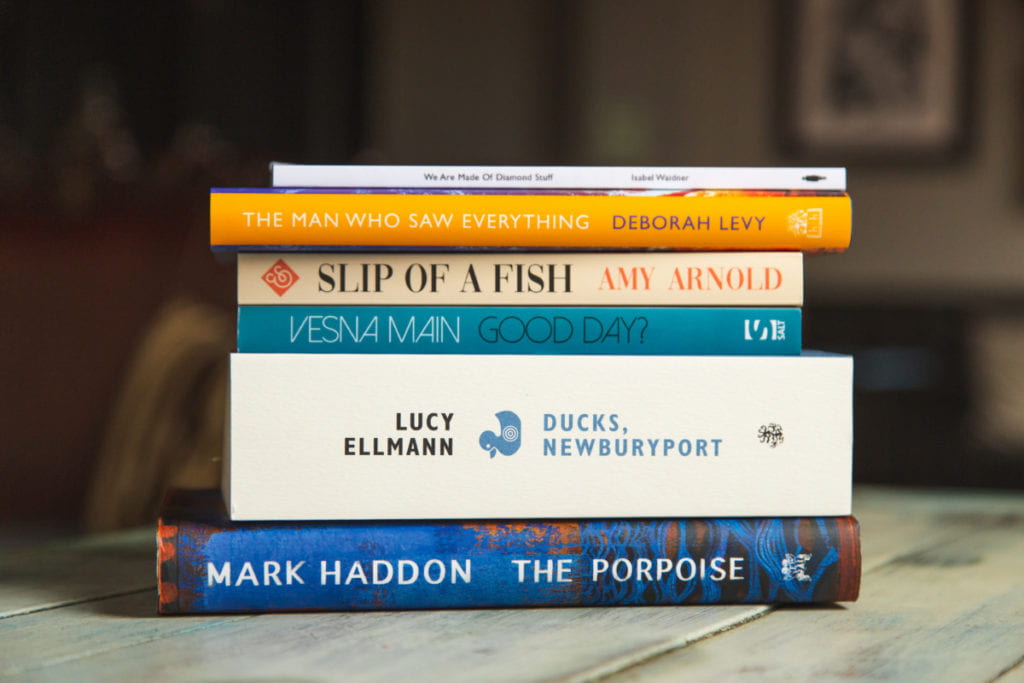Dr Tim Parnell is Senior Lecturer in English at Goldsmiths University of London and Literary Director of the Goldsmiths Prize. In this interview ahead of the announcement of the Prize’s 2019 winner, Tim shares how the Prize began and reflects on the outlook for the novel form.

You set up the Goldsmiths Prize back in 2013 – why did you want to establish a prize like this?
I had a strong sense that the sort of novels I taught and found most interesting were not the kind of books that were winning prizes. To me, there seemed to be an unnecessarily wide gap between the novel as it was perceived in mainstream literary culture and as it was taught and understood in university syllabi. I also felt that people were often ignoring really interesting books because they were perceived as too challenging. The Turner Prize also influenced my thinking. It intrigued me that it had transformed art that was once vilified and dismissed into something that people happily queued up to see. I could see how a prize could make a cultural intervention and help to make the marginal and ‘difficult’ popular – that’s what we’re trying to do with the Goldsmiths Prize, in a way.
You’ve talked previously about the perception of British fiction as being quite conservative – was it important for you to showcase authors doing things differently?
Yes, without a doubt. The post-war British novel has typically been seen as convention-bound and unadventurous. The really interesting stuff seemed to be being written elsewhere – in Europe or Latin America, for example. I wanted the prize to modify that narrative by shining a light on the exciting novels being written in the British Isles, and encouraging those writers attuned to the spirit of creative freedom and daring found in earlier moments in the history of British fiction, such as the eighteenth and early-twentieth centuries.
The Goldsmiths Prize sets out to celebrate the qualities of creative daring associated with Goldsmiths – why is this element of the Prize important for you?
I think all of us involved with the Prize genuinely feel that being creative and imaginatively and intellectually daring is a part of being at Goldsmiths. A lot of our creative writing students, for example, come here wanting to do new things. They don’t want to just repeat tired conventions, they want to find fresh ways of telling. There is no virtue in simply repeating a mantra about Goldsmiths and creativity. For it to be more than an idea, we have to make it so, and I think the Prize can help to do that. Beyond the novels we reward, it brings writers working at the cutting edge of British and Irish fiction to Goldsmiths, so we are fostering a creative and innovative milieu and encouraging our students to try exciting and different things.
How do you decide which novels make it onto the shortlist?
It’s a long process: submissions begin in January and they go on to the end of March. In the first instance, we read the 100 or so novels in the English department. It’s quite easy to spot the books which stand out. We ask ourselves: are they trying to do something different here? Are they using the form in interesting ways? Once we identify those, then it’s over to the judges to bring their own insights and judgements to bear. The Prize only fulfills its purpose if we are bold in the books we select.
The Goldsmiths Prize previously only applied to British and Irish writers and this year you’ve opened it up to writers of any nationality – providing they have been resident in Britain or Ireland for three years. What was your thinking behind this change?
The original decision to limit the Prize to British and Irish writers was deliberate – we weren’t being parochial or nationalistic, but we did want to maintain a clear focus on the novel in Great Britain and Ireland. This was partly because of its reputation for conservatism, and also because of the limited number of prizes looking at what was happening in the British Isles. With the Booker Prize extending its range to include writers in the United States, this felt particularly important. But while we had no desire to internationalise the Prize, we do not subscribe to narrow ideas of what constitutes a nation’s literature. We thought it was necessary to signal that by opening up our eligibility criteria so that submissions can more fully reflect the diverse voices which contribute to the vibrant form that is the novel as it is being written in the UK and Ireland today.
There’s been a lot of discussion in recent years on the future of the novel. What do you think is the outlook for the novel form in today’s digital age?
Will Self, among others, thinks the death of the novel is coming – I don’t think it is. The Prize along with the New Statesman runs a lecture series on Why the Novel Matters, and our speakers are hugely positive about the things the novel can do and say that other forms can’t. I would say the novel form is almost infinitely variable, and it will last as long as people use language. Innovation is important, though. You must keep re-vivifying the novel: I think it dies when it becomes a conventional and predictable form.
The Goldsmiths Prize is now in its seventh year – what are your hopes for the future of the Prize?
What makes the Prize is the books, so what I’d like to see is more books being written that are in Goldsmiths Prize territory. There has been a bit of a victory insofar as mainstream literary culture is now much more interested in, and accepting of, the kind of novels that we are interested in. What was seen as quite a marginal tradition has become increasingly central. People have really accepted and enjoyed these books, but conventional fiction is still the norm. I’d like the prize to keep finding really interesting and mould-breaking writers that people haven’t noticed and to introduce them to a new and receptive readership.
Finally – do you have a favourite novelist?
I have quite a lot of favourite novelists – I have different ones across the year. José Saramago, a Portuguese writer, is my favourite at the moment. I love books and novels in particular – that’s what’s so great about teaching English and running a book prize, I get paid to read!
The winner of the 2019 Goldsmiths Prize will be announced on Wednesday 13 November – keep an eye on the Goldsmiths Prize Twitter @GoldsmithsPrize to find out more.




